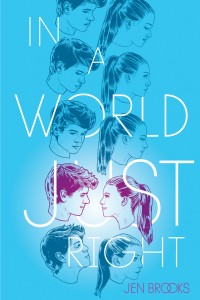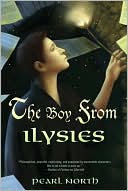inspiration
The importance of good critique partners
I have finished it. The draft of World Maker, my third manuscript. It took under five months to write over 92,000 words.
Before I move to the meat of this entry, I need to thank my husband, Chris. His enthusiasm for the project and help in other ways has been one of the main reasons I tallied such a high daily word count these last weeks. The night I finished, he stayed up late to read the last chapters hot off the press and talk them over with me. He is important to me and my writing, and by saying what I do below about my fabulous critique partners, I in no way mean to neglect him.
SO . . . I have two critique partners I first worked with in graduate school in Seton Hill’s Writing Popular Fiction program. We have remained friends over the years since graduating in 2006, but some of those years were thinly populated with word count while we each dealt with our individual lives.
Then one of my partners, Diana Botsford, made an opportunity happen for herself. She wrote a book called Four Dragons, set in the Stargate universe. I was privileged to be a part of that writing by critiquing chapters as she went along. I was quite inspired by her example to get back into writing.
I’ve talked elsewhere on this blog about returning to graduate school to finish my second manuscript. At the SHU WPF alumni’s In Your Write Mind retreat, which coincided with my graduation, I met with an agent who requested a partial and went on to request the full. I wanted to make a few revisions to the completed thesis, based on feedback from my graduation residency, and he graciously gave me the two weeks I requested. I did a two-week all-nighter to get it done, and every single day my other critique partner, Rhonda Mason, was there to receive and edit copy for me.
That second manuscript ended up being a pass for that agent, but my first round of queries yielded three additional requests for the full. This was big news for me, and my critique partners made much of it. That got me even more excited about writing. While I waited to hear from the requesting agents, I started thinking about what to write next.
I came up with World Maker, which I began writing on September 22, 2011 and finished on January 16, 2012. Although the word count was produced in four months, the novel took five months because I spent the first few weeks working out plot. Actually, total completion time will be more like six months. When I finished the draft I immediately revised it into a second draft. It’s with beta readers now, and I will revise again when I get their feedback. (And although this post is about my fabulous critique partners, I have to say I have a great group of beta readers. Thank you!)
What happened in our little critique corner of the universe was a giant snowball effect. Our writing fueled each other’s writing, both for its content and word count. Diana finished her second Stargate novel, The Drift, on January 16th as well. Rhonda is some 50,000 words into her science fiction romance, Empress Game.
We all three write quite different things, even though we all consider ourselves speculative fiction writers (and Rhonda, aka Katherine Ivy, is a published Romance writer). But there is a commonality to our writing that I’ve been trying to put a finger on. I know I enjoy reading what they write, and I have become a very particular reader lately.
To me, these ladies are ideal as critique partners because 1) they are actual writers with a similar level of experience critiquing, 2) they have excellent critical eyes and make valuable comments that give me the tools to evaluate what I write, 3) they know when I need the hard truth and when I need to hear encouragement, and they make encouragement sound like honest praise, 4) they give of their time and expertise as much as demand mine of me, so the critiquing and helping is reciprocal, 5) they are my friends and care about me and what challenges I face as I walk this road to becoming published.
I cannot overstate the importance Rhonda and Diana have had in my development as a writer. And I cannot thank them enough for being the writers and people they are.
Speak up:
4 comments| TAGS:
critique partners, Diana Botsford, In Your Write Mind, inspiration, Rhonda Mason, Seton Hill University, Writing Popular Fiction programTraveling epiphanies
One of my favorite ways to connect with mywriterself is to travel, and my favorite vacations are ones that are busy. Many people prefer spending a week relaxing at the beach or cruising a new social scene, but I enjoy vacations where I’m exploring nature and/or history. It’s not unusual for me to plan an itinerary where I overnight in several different places.
My especial favorites are national parks, ancient ruins, and working cathedrals. For me, there is no way to feel closer to the divine than to stand on the rim of the grand canyon or to walk through the ruins at Tintern Abbey. I want more than anything to tour the Holy Land and to see the older placeseastern and westernwhere civilization was born.
But I’ve had epiphanies closer to homestanding on a beach, walking a city street, hiking a trail, running around a lake, taking a drive on a country road.
During travel I reopen the mental space (no computer, no phone, no TV) to contemplate the vastness/smallness of the world, of human experience, of something mystical binding it all. Sometimes I feel like if I reach out just a little further I’ll come to an understanding, and it’s in this nearness where I find the urge to write, the urge to capture a feeling of insight that passes almost as quickly as it comes.
I don’t think I write whole novels in this poetical-spiritual headspace. My novel writing is a little too practical for that. But I do hope that somewhere in the climax of each book, a reader will feel that epiphany, that glimpse of understanding that inspires me to write.
After all, isn’t reading a novel simply another form of travel?

Denali National Park, Alaska, 2011
Where have you traveled and found inspiration?
Speak up:
comment| TAGS:
Alaska, inspiration, travelCrank it out
The reason most people fail instead of succeed is that they trade what they want most for what they want at the moment.
I’ve tried to find this quotation’s author so I can give proper attribution, but my attempts on the internet keep coming up “unknown.” I first heard these words when the boys track team where I used to coach had it put on the backs of their long-sleeve T-shirts. Shortly thereafter, the girls team had their own shirts made with the same quote. So many years later, I still have these shirts the teams gave me.
It’s obvious how this quote relates to track and field. When you’re competing, or when you’re working out, or when you’re supposed to be working out, there are so many temptations to slack off, give up, or simply doubt yourself. Athletes who work through these temptations tend to find greater success. I would think it’s obvious this quote also relates to pretty much anything else in life. If you want something badly enough, you have to work at it no matter how you’re tempted to slack off in the now. You must always remind yourself of why you’re working.
In my case, my goal is to be a professional writer. Over the course of my writing my first manuscript, I wasn’t sure of this goal. I didn’t need the motivation of a potential writing career because I was writing to get a masters degree, and I had a built-in structure of deadlines through my graduate program. I began my second manuscript after graduation, and I was doing pretty well until I hit a major life-hurdle and stopped writing altogether. Returning to grad school for another degree helped me get that manuscript done.
But somehow things are different for my third. It’s partly simple maturity, but I’ve also finally come to the conclusion I want to be a writer.
It used to be that the stars would have to align, the earth had to fall silent, and several muses needed to be singing in order for me to write. I required huge chunks of hours at a time because it took forever for me to warm up to write and then struggle through plotting. It wasn’t worth my effort to start a writing session that didn’t result in one or more complete chapters.
Now, with a little one in my care, this is impossible. It was close to impossible before, which is why I took a very long time to finish my first two manuscripts. Somewhere along the way someone told me if I wrote a page a day for year, I’d have a manuscript. This made sense, but I just couldn’t do it.
In the last month or so, I’ve been getting up extra early every weekday to write. Some days I only do crank out one pagebut this is the goal. Some days I write a page of notes, either of ideas or research. Many days I get more than one page done. This is working for me, but the trick is that I don’t give in to the million other easier things I could be doing at the computer (or to sleeping in). I save those for the reward when my page is done.
I know that I’m capable of getting more words done in a day, but for now it’s still a little hard with the toddler pulling me away to “go play marbles” every three seconds. I’ve always done my best work under pressure, and I hope someday soon to sign with an agent and begin the deadline process with a publisher.
Do you have any special ways you’ve tackled the temptation to give up what you want most for what you want at the moment?
Speak up:
2 comments| TAGS:
inspiration, writing processSTORY-inspired plot chart
One of the most importantscratch thatTHE most important book I’ve read about writing is Robert McKee’s Story.
McKee’s book is based on his famous seminars he delivers world-wide and is actually for screenwriters, but his advice is completely relevant for novel writers. On his website, he says his alumni have won 35 Academy Awards (160+ Nominations) and 164 Emmy Awards (500+ Nominations). The dust jacket of my hardcover copy says works written, directed, or produced by his alumni include Batman Forever, Beauty and the Beast, E.R., Forrest Gump, Friends, Law & Order, Saving Private Ryan, Seinfeld, Sesame Street, Toy Story, and the X-Files, and my copy is something like eight years old.
Two important concepts I took from the book are the “gap” and “two goods/two bads.” Essentially, the “gap” opens up when a character takes action they expect to yield a certain result, but the reality turns out differently. Two goods/two bads refers to character choices, which are only meaningful if the choice is between two equally strong goods or two equally strong bads. To really understand these concepts, read the explanations and examples in McKee’s book.
Reading Story led to my creation of a “gap chart” for my first manuscript (science fiction set on a faraway planet). My main character, Aiden Carter, is an ambitious eighteen-year-old on the fast track to the equivalent of the presidency. His skeleton in the closet is his mother, who frequently breaks the law against charity. Here is the very top of the chart:
| Plot advances | What Aiden expects | What happens instead | Possible choices/ consequences | Decision/new direction | What is risked |
| Aiden Carter cheats in a track meet, next morning called to “principal’s” office. | Fears either a punishment for cheating or questions about his collapse on the track. | Questioned by the military government about his mother, Hannah Carter.INCITING INCIDENT | TWO GOODSTell truth-avoid getting in trouble.
Lie-protect mother from prosecution. |
Lies. | University honor status. |
| Aiden walks home.PROGRESSIVE COMPLICATIONS BEGIN | Hannah Carter is safe. (because his lies will protect her) | Hannah Carter is arrested anyway. | TWO GOODSDon’t testify-possibly prevent her conviction.
Testify-save his own career. |
Testifies. | Hannah Carter’s life. |
This chart goes on for twelve more rows with Aiden taking actions and having his world react unexpectedly, which then causes him to take more actions where more and more is risked. It is that far-right column that gives the story it’s drama. My “What is risked” column progresses from “university honor status,” through things like “his identity,” “his secret power,” “his life,” “the entire planet.” As you go further down my risk column the stakes for Aiden get higher and higher until the largest possible thing is at stake.
I made this gap chart after I had written the manuscript. It helped me see my story in a way that was much more useful than a mere outline of the plot. It’s one of the most important writing exercises I’ve ever done.
For me it had to be part of the rewrite, but a different writer might benefit from doing this exercise at the outset. Some entry soon I’ll write a few words on the plotting vs. pantsing question.
Speak up:
15 comments| TAGS:
chart, gap chart, inspiration, Prosorinos, Robert McKee, StoryWhat I learned from The Boy From Ilysies
This is the second book in the Libyrinth trilogy by Pearl North, and I think the cover blurb from Realms of Fantasy is accurate: “Philosophical, powerful, captivating, and populated by memorable characters.”
Because of my own writing interests, it is the “philosophical” that draws me most to this story. Here is the first paragraph on the dust jacket of my copy: “On a world where the only ties to Earth appear to be the books stored and protected in the vast library known as the Libyrinth, a battle once raged between the Singers, who for generations beyond remembering relied on oral storytelling to transmit knowledge, and the Libyrarians, who dedicated their lives to preserving the wisdom stored in books.” The plot of the first book, Libyrinth, basically covers the war between those who believe in the written word and those who don’t.
But the trilogy is philosophical beyond matters of literacy. There are several societies in Pearl North’s world, and besides the question of literacy, these societies are defined by their cultural definitions of the roles of women and men. The Boy From Ilysies is primarily the story of Po, a young man raised in a society where men serve women. As an exile from his homeland, he struggles with his role as a man in a new society where men and women are equals. Expectations and cultural norms are questioned by many characters in the story as the characters from different walks of life try to understand each other.
This book is useful to me as an example of how characterization, world-building, and plot are intertwined. Several major plot points revolve around decisions characters make as a result of their cultural upbringing or reaction to that upbringing. For example, Po makes the mistake of falling into his old role of subservience to a woman and almost destroys the budding utopia he calls home. This disaster drives the plot for the rest of the novel. On a related note, I paid particular attention to how North’s characters speak of and think about the differences among them and the changes certain characters undergo throughout the book.
I also found this book useful because it contains one heck of a magical object. I can’t wait to see what happens with it in the final installment of the series.


